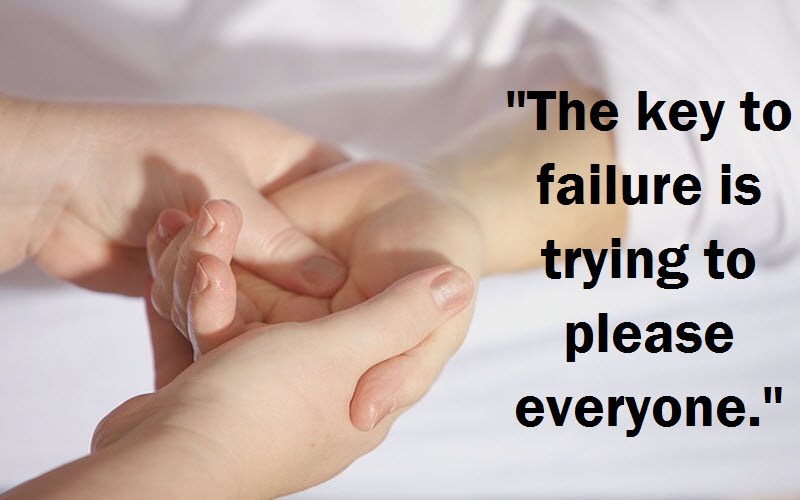
Trying to make other people happy can be a very good thing.
After all, it’s admirable to want to:
But there’s a definitive line between compassion for others and being a people pleaser.
And consistently putting other people’s needs before your own, can lead to problems for both yourself and the people who you are trying to help.
Consider business leaders who are scared of confrontation because they don’t want to make waves, or parents who let their children run wild because they don’t want to hurt their feelings through discipline.
Being a people pleaser can easily seem like a good and immediate solution for avoiding a problem, but there will surely be long-term consequences down the road.
So before you escape an unpleasant situation by going into “people pleaser” mode and kowtowing to someone else’s wishes, keep these five facts in mind.
Be sure to use them to reassess your inclination to make someone else happy. You may find that your people pleasing instinct is actually doing more harm than good.
Once you give in to an unreasonable request or two, people may start to get the assumption that you’re an easy target.
And once you go down that path of saying yes to everything, it can become harder and harder to say no.
After all, if you’ve already given your neighbor multiple rides to work, or helped them move, or helped with a repair, then why wouldn’t you come over and re-paint their house?
Guilt and pressure should never be parts of a decision-making process, so if you feel yourself being talked into something you don’t want to do, it’s time to take a big step back and re-evaluate your response.
You can’t make everyone happy. Whenever you make a decision, there will be some people who disagree.
The old saying that “you can’t please everyone all the time” is undeniably true, so remember that no matter what you decide to do, scrutiny always happens, and that’s perfectly OK.
There’s another old saying that “you can’t fix crazy,” but ironically enough, it’s often the loudest or most demanding people who seem to inevitably get their way.
Make sure that you’re not just making a decision or honoring a request to quiet down an unreasonable or inevitably loud person.
Not wanting to deal with a person’s response is never solid grounds for making a decision.
If you think about it, a people pleaser doesn’t say yes or make a crowd-pleasing decision because they think it’s the most beneficial option.
It’s because they want people to like them, and they want to avoid confrontation.
If a decision is all about ensuring your comfort, and avoiding anything unpleasant, then you’re not helping yourself or the people who your decision affects.
Above all else, stick to your values. Never agree to something or make a decision that’s counter-intuitive to your gut.
By adhering to your values and ethics, you will have peace of mind that you formed your decisions with a strong backbone, and the intention to produce the best outcome, no matter what.
Are you a people pleaser? The WINology Performance Group can help! Contact us today to learn more or visit us online!
How have you learned to not to be a people pleaser? Let us know in the comments section below!